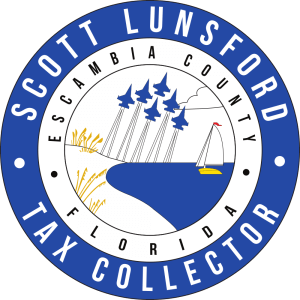Notice of Auction of Tangible Assets of Physician Specialty Pharmacy LLC
Tangible Personal Property Taxes are levied against the furniture, fixtures, and equipment of a business or the furnishings of a rental property. The assessed value is determined by the property appraiser, and the tangible tax roll is then certified and delivered to the tax collector for collection. Tax statements are mailed on November 1 of each year.
Early payments are eligible for discount rates as follows:
- 4% in November
- 3% in December
- 2% in January
- 1% in February
- Gross amount in March
Unpaid taxes become delinquent on April 1 of each year, at which time a 1½% penalty is added to the bill. Within 45 days after April 1, a list of delinquent personal property taxpayers will be advertised and the cost of advertising added to the delinquent penalty. The interest rate is 18% per annum or 1½% per month, and additional court costs and collection and warrant fees will be added after May 1.
Businesses not paying their taxes will have warrants issued against them by the tax collector, who also will apply to the Circuit Court for an order directing levy and seizure of the owner’s tangible personal property for the amount of unpaid taxes. Outstanding tax warrants have the same force and effect as a Writ of Garnishment when levied upon the bank account of the property owner. Locating such equipment and inventory often calls for extensive investigative work and conscientious applications of judgment on the part of the tax collector.
Due to the passage of Amendment 1 on January 29, 2008, a tangible personal property exemption of up to $25,000 is available to taxpayers who timely file their tangible return with the property appraiser by April 1 of the tax year.
Delinquent Tangible Personal Property Taxes
Unpaid tangible personal property taxes become delinquent on April 1 each year, at which time a 1½% penalty per month is added to the bill. Within 45 days after the date of delinquency, the tax collector is required by law to advertise a list of the delinquent taxpayers one time in a local newspaper. The cost of this advertising is then added to the tax notice.
Florida Statutes require the tax collector to issue tax warrants prior to April 30 of the next tax year on all unpaid tangible personal property taxes. The tax collector must then petition the Circuit Court for an order ratifying and directing the seizure and sale of the property for the amount of the unpaid taxes and costs. The ratified tax warrant has the same force and effect as a Writ of Garnishment when levied by the tax collector.

